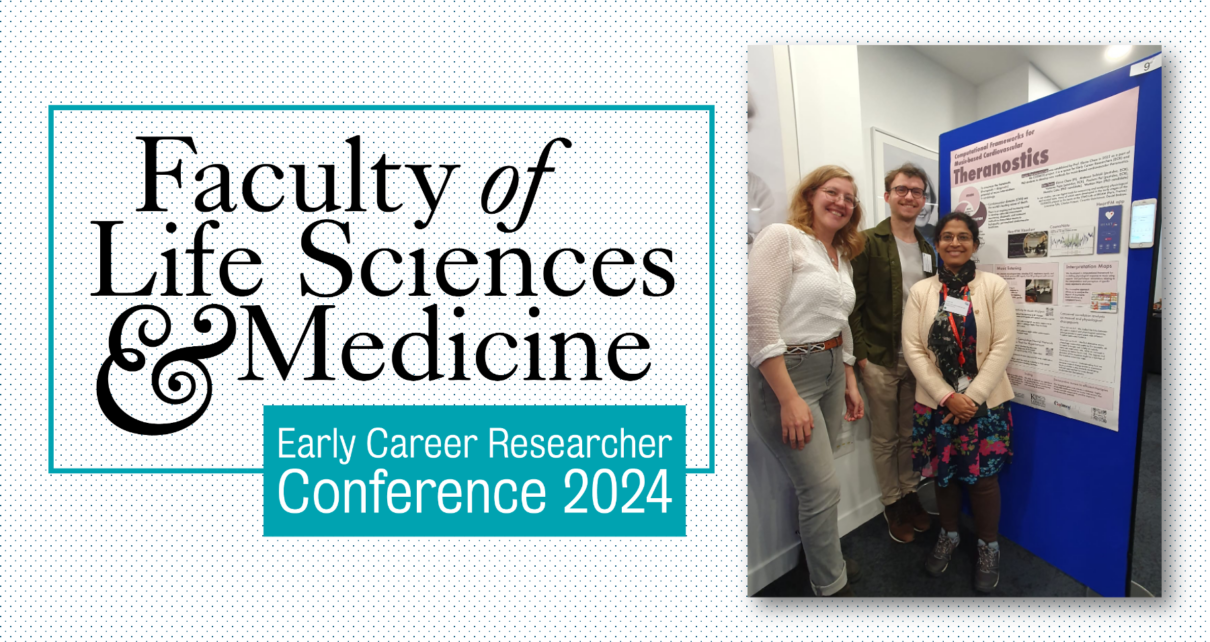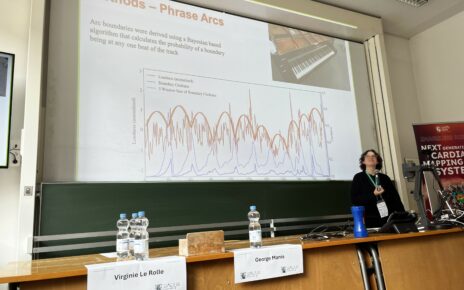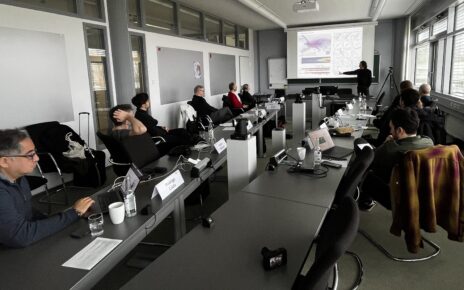Mateusz Soliński, Vanessa Pope, and Poulomi Pal attended the second Early Career Researcher Conference organised by the Faculty of Life Science and Medicine (FoLSM) at King’s College London on 6th November 2024. The trio met peers from different FoLSM research teams and participated in panels on publishing, career perspectives, self-development, and wellness.
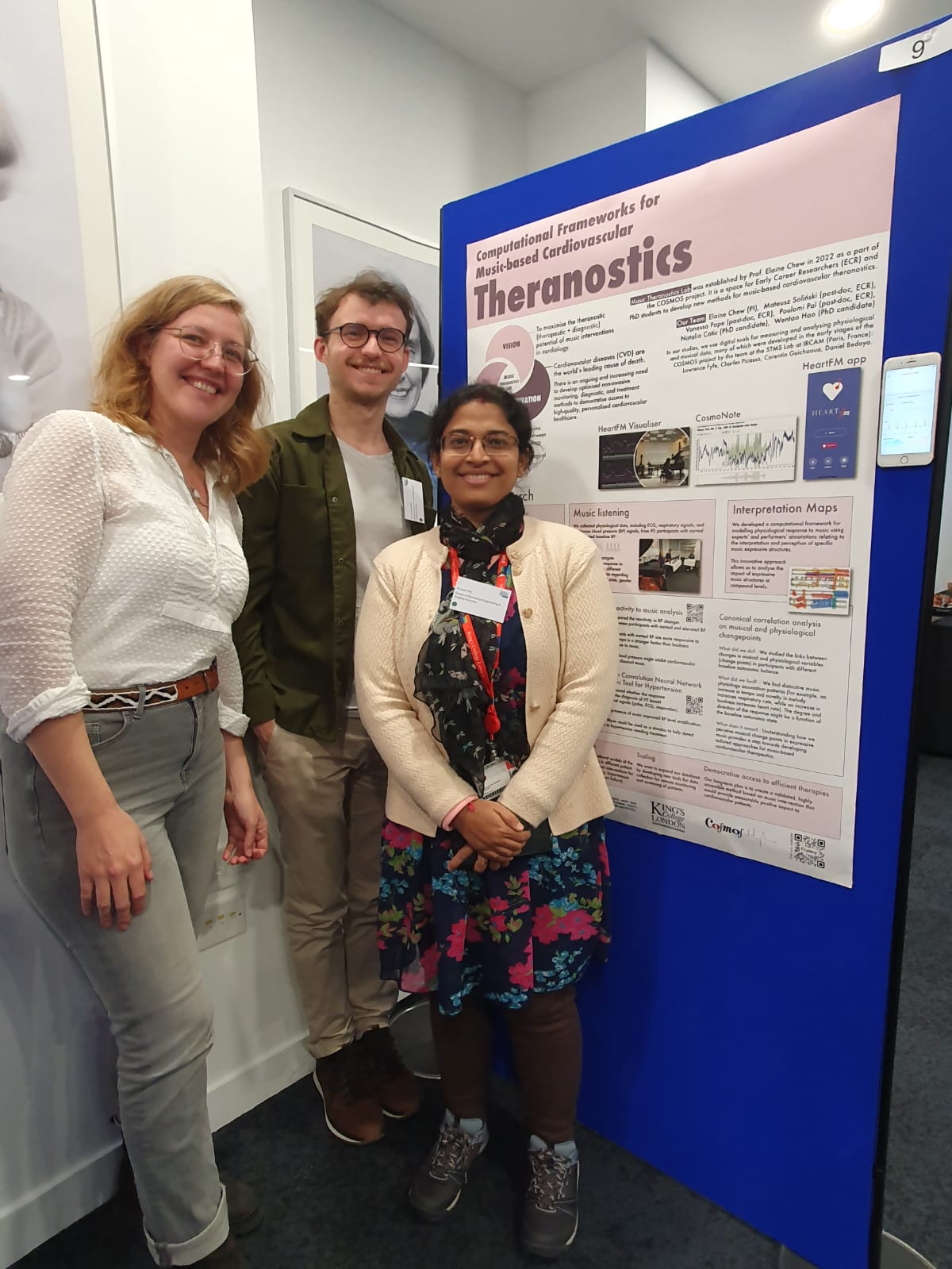
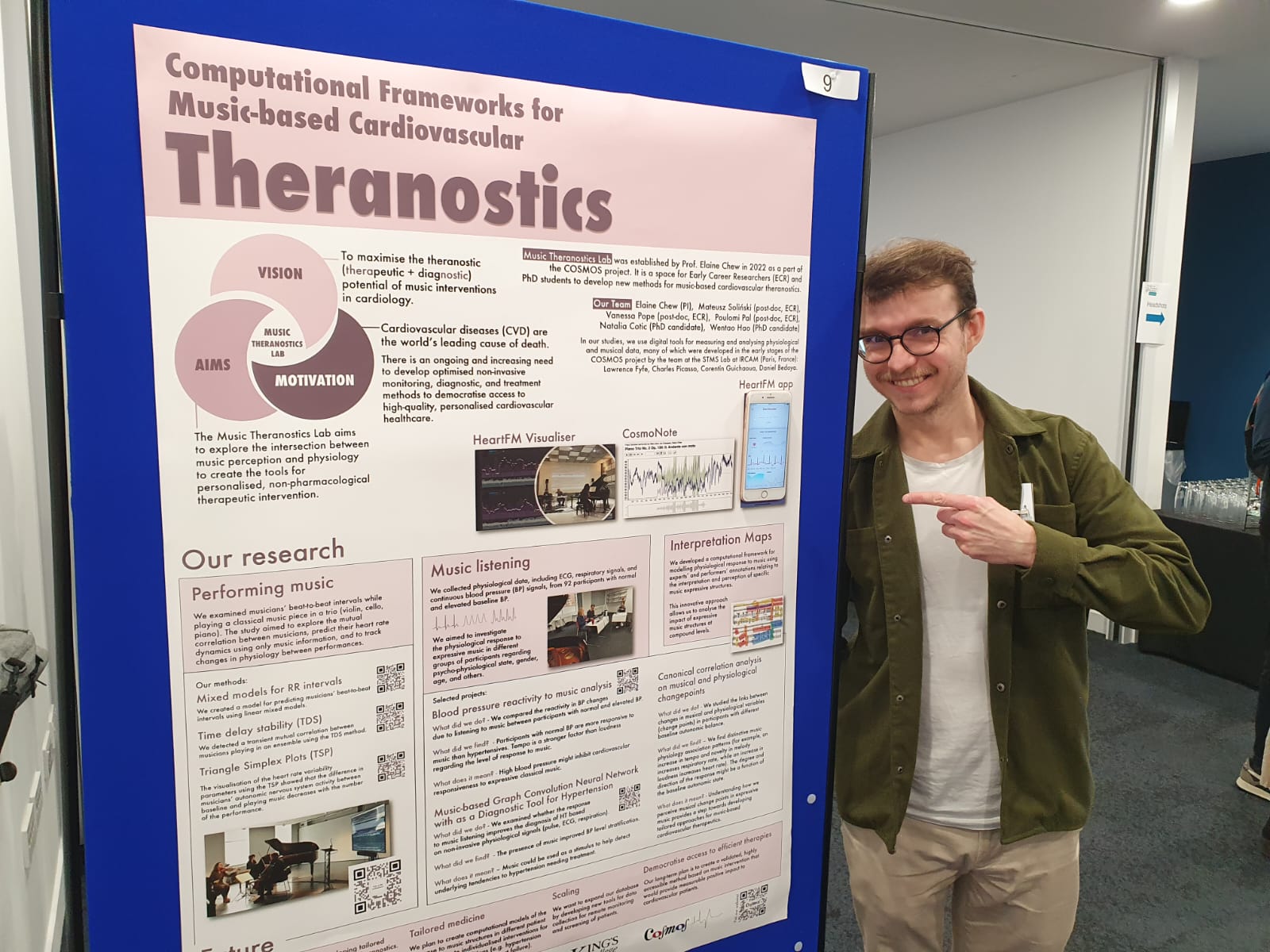
Between sessions, attendees were invited to view posters prepared by research teams at FoLSM. Each poster described the scope of the team’s research, the most prominent results and the future steps. Our poster was presented by Mateusz Soliński, fielding questions about on Music Theranostic whilst showing his own ECG signal on the HeartFM app in real time!
During the lunch break, conference participants could vote for their favourite poster, and the Music Theranostics team garnered the most votes to win the People’s Award for the Best Poster! This was one of the three awards (along with the Organising Committee Award and the Vice Dean’s Award) that were announced at the end of the conference! We are very proud of our little success and are delighted that our work has been recognised by our colleagues in the faculty.

Thank you, FoLSM, for the gift voucher for the group lunch!

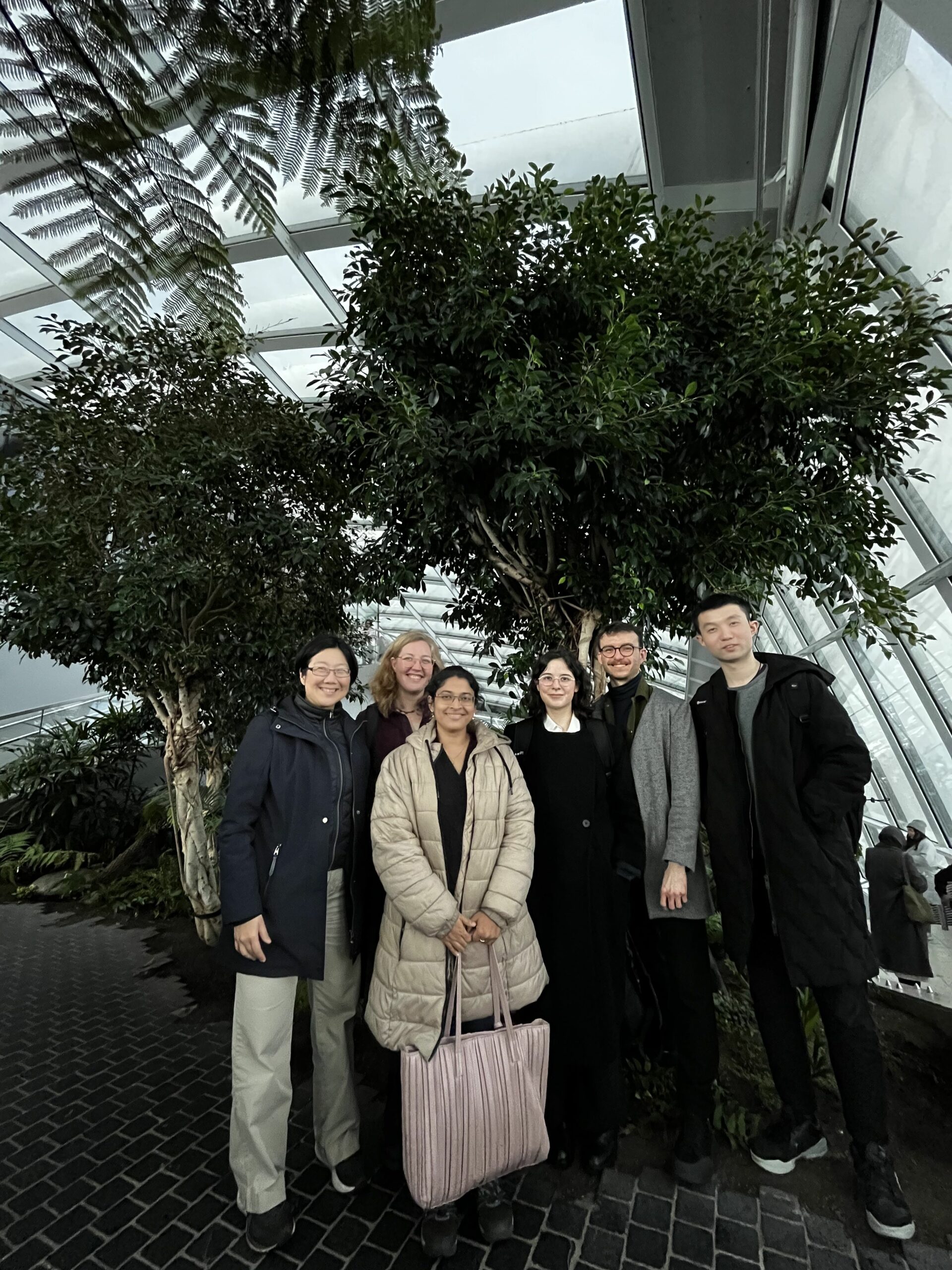

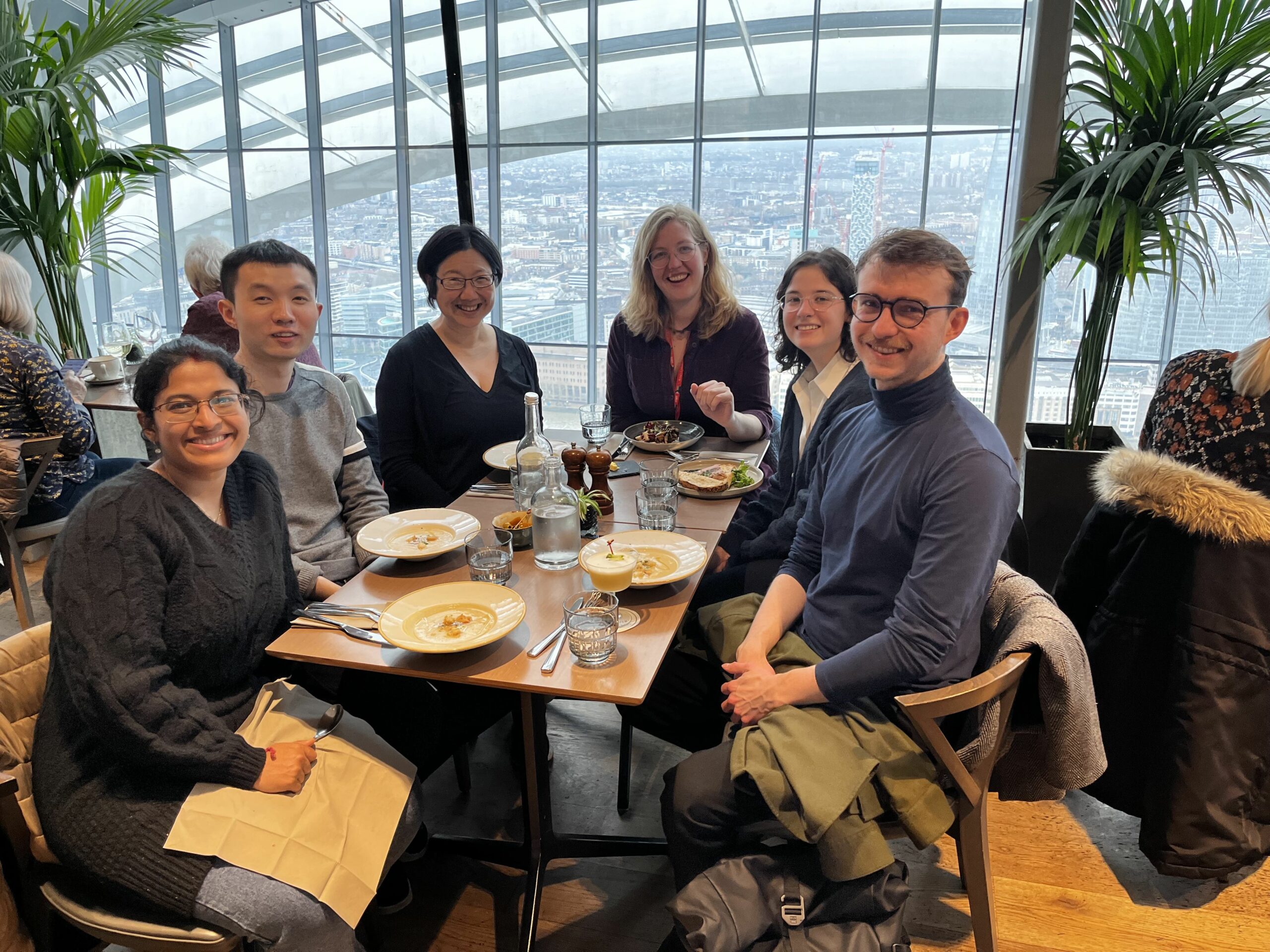

Computational Frameworks for Music-based Cardiovascular Theranostics
COSMOS Team at the Music Theranostics Lab: Elaine Chew (PI), Mateusz Soliński (post-doc, ECR), Vanessa Pope (post-doc, ECR), Poulomi Pal (post-doc, ECR), Natalia Cotic (PhD Candidate), Wentao Hao (PhD Candidate).
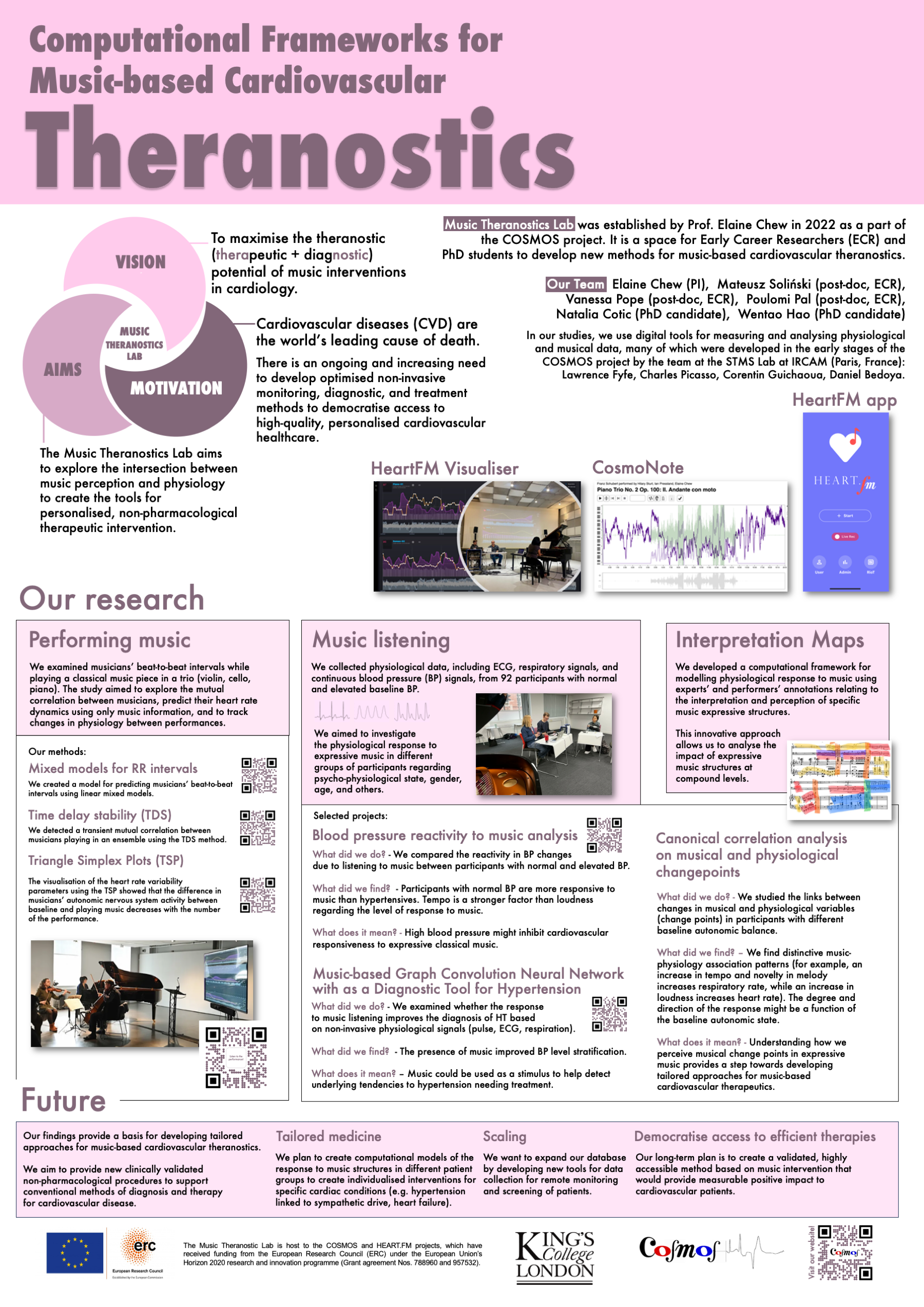
Abstract: Cardiovascular disease (CVD) is the world’s leading cause of death. There is an ongoing and increasing need to develop optimised noninvasive monitoring, diagnostic, and treatment methods to democratise access to high-quality, personalised cardiovascular healthcare. The Music Theranostics Lab aims to explore and understand the effect of music on listeners’ and performers’ bodies to maximise the therapeutic and diagnostic potential of music interventions in cardiology.
The main scope of our research is to characterise and analyse the effects of music listening and performing on physiological responses related to the autonomic nervous system. We use music features extracted from continuously recorded audio signals such as tempo, loudness, harmonic tension and annotated prosodic structures such as significant melody and accompaniment, and climax to create novel tools for analysing changes in physiological signals, such as electrocardiographic traces, heart rate, respiration and blood pressure.
Performing music: We created a framework for modelling the beat-to-beat heart rate dynamics of a music ensemble while playing in a trio using only music information. We also analysed mutual physiological coupling between the musicians using Time Delay Stability and developed a novel visualisation of their autonomic response based on triangle simplex plots.
Music listening: Our research on listeners analyses the physiological effects of expressive music structures, including changepoints in autonomic variables and cardio-respiratory entrainment to musical phrases. Computational analysis shows differentiable autonomic responses and reactivity to music predicated on baseline physiology. New research in music-based diagnostics uses Graph Convolutional Neural Networks to stratify individuals by blood pressure categories.
Our findings provide a basis for developing tailored approaches for music-based cardiovascular theranostics. By exploring the intersection between computational perception and physiology, we not only advance our knowledge of human health but also the use of music as a personalised, non-pharmacological therapeutic intervention.

